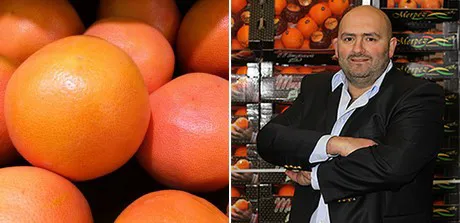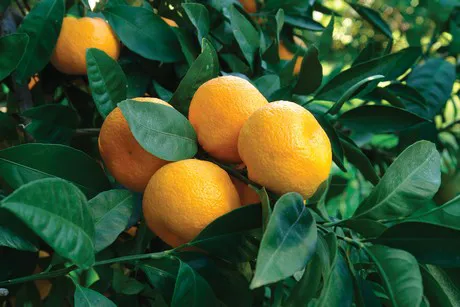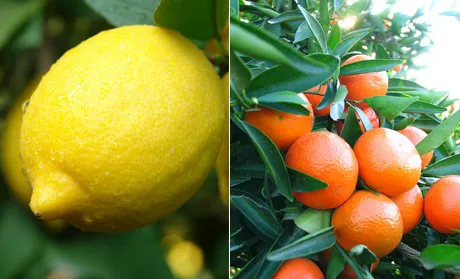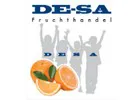In the winter season, classically, lots of citrus from different origins are always being sold. Besides Spain, Italy, North Africa and Greece, Turkey is also present in this market. The current season however shows that sales are quite difficult: this is caused by poor fruit quality across the entire citrus segment, shown by the sales of specialized fruit trade De-Sa GmbH, based in Munich.
The quality of this year's Turkish citrus fruits leaves something to be desired since the beginning of the season. "We have not been marketing oranges or satsumas this season, simply because the quality was not there. Our suppliers advised us not to purchase and market these two products," said one of the buyer-sellers of De-Sa GmbH.
 Owner Sezgin Yildirim of De-Sa GmbH is considered a long-standing specialist in Turkish fruit specialties
Owner Sezgin Yildirim of De-Sa GmbH is considered a long-standing specialist in Turkish fruit specialties
Grapefruit: Relatively stable market
The GmbH delivers fixed ranges to German food retailers. This year, due to the aforementioned quality problems, only grapefruits of reasonable quality can be delivered. And in this area there is direct competition with both Spain and the US. "Turkish producers are offering more or less the same varieties as the Spanish. The can be acceptable, if the growers were able to use the correct, approved pesticides. Purple grapefruits from Turkish origin, however, are selling relatively quickly, in the current situation."
Satsumas: marginal phenomenon in German retail
Satsumas are a specialty, mainly cultivated on a large scale in Turkey. However, the small-fruited citrus is still a marginal phenomenon within German food retailing. "Satsumas are selling well, depending on their availability, but not in the big supermarkets because of their short shelf life. Only in Austria, the segment has a certain importance and potential in the trade."
Lemons: Unsuitable varieties
Apart from oranges, small fruit citrus fruits and grapefruit and lemons are also produced in Turkey, but these are not suitable for the European market, explains Özdemir. "The early variety Interdonato is well known in the trade, but can be somewhat difficult to store. In addition, there is the Lamas variety, which is primarily used for domestic needs. Throughout the season, the Turkish citrus industry is in direct competition with Greece and Spain. For the entire assortment, Turkish growers will primarily ship to Russia and during cultivation of some of the fruit, heavy spraying is still an item."

Focus on Turkey
After many years on the Munich wholesale market, Mr. Yildirim founded De-Sa Fruchthandels GmbH in 2011. The company was established as a specialist for fruits and vegetables, with a focus on Turkey. The primary focus is on the procurement of goods and supplies to food retailing and wholesalers. Partners of the company are numerous, well-known companies, like Metro Germany, Metro International, Real Germany and various other suppliers of discounters and food retailers.

For more Information:
DE-SA Fruchthandels GmbH
GF: Sezgin Yildirim
Oberländerstr. 2
81371 München
Tel +49 (0)89 72 62 50 10
Fax +49 (0)89 72 62 50 12
E-Mail info@desafrucht.com
www.desafrucht.com
